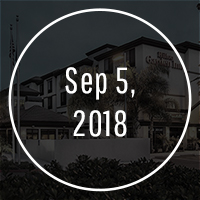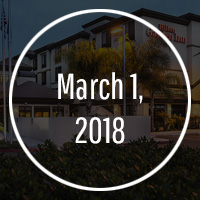Trends in the U.S. Lodging Industry – 2011Q2 Update
Forecast Update
Smith Travel Research’s (STR) Summer 2011 Forecast predicts domestic summer occupancy of 66.7 percent, up 1.7 percent from 2010 while ADR is expected to rise 4.1 percent to $103.01. This equates to a 6.7 percent increase in industry revenue for the summer.
14 of the top 15 international markets were up year over year in 2010 vs. 2009, according to the U.S. Office of Travel and Tourism Industries. Pegasus Solutions reports that forward-looking GDS bookings are up in the first quarter of 2011 on a year over year basis. Revenue per available room (REVPAR) is up in the U.S. during the first quarter of this year, according to STR. In California, many markets are up by over 10 percent in REVPAR.
The forecast for California is uneven in that several markets are doing amazingly well while others lag behind 2010 numbers. The leaders are most of the major cities like San Francisco and Los Angeles as well as most of Orange County while Redding/Chico is down and the submarket of Ontario is flat. In San Diego, REVPAR is up nearly 10 percent.
As for the economy, the Burnham-Moores Center for Real Estate at the University of San Diego reported that leading economic indicators were up sharply in San Diego in March. This bodes well for continued growth with only one weak spot, job growth. It will take four years to reach 2007 employment levels in San Diego, according to the report. Other cities will be better or worse but San Diego appears to be fairly typical of most of the Top 25 cities.
Yes, we saw an almost jobless recovery until now, but March saw 24,700 jobs added in San Diego and nearly 100,000 statewide. We believe that by the end of the year, occupancy levels will be up 2 percent and average rates will be up close to 7 percent in San Diego as the entire industry gets out of the “hangover.”
The April Bureau of Labor Statistics came out with some encouraging news on the job front. The private sector in April generated the most jobs since February 2006. The 244,000 jobs created in April were more than the 180,000 new jobs economists were anticipating, the strongest reading in 11 months. The private sector led the way with 268,000 new jobs, minus the 24,000 federal, state and local government jobs that disappeared.
An Orbitz survey, based on air bookings made on Orbitz.com for travel between June 1 and August 31, shows Orlando in first place and Las Vegas in second place after two years in the premier position. Following the top two, in order, are: Seattle, Los Angeles, Denver, New York City, San Francisco, Chicago, Cancun, Boston and San Diego. The survey also indicated that 81 percent are still planning a summer vacation with the majority having budgets under $1,500. The survey was taken before gas prices had stabilized in the second week of May, 2011. This is great news considering gas prices actually appear to be heading south!
Revenue Management
Revenue Management has gone from being an art when it was first introduced by the airline industry in the 1970s to being a complex science today. Hotels began getting into what was called yield management in the 1980s. Google’s jump into the hotel business with the acquisition of ITA Software coupled with all the myriad online travel agencies and their systems has given “rate management” elevated priority status at every staff meeting. While I agree that this topic is paramount to our daily success, let’s make certain that we are using the proper tools and not just the local “call around.” Pace reports and true competitive market intelligence is required to accurately depict a comp set.
Moreover, leisure and group demand is back and it is time that hotels learn from the third party consultants like Smith Travel Research that the days of the discount first should be over. Even if the strategy of lowering rates were a good one, when demand peaks such as in summer time, why would hoteliers not want to be the last to fill instead of the first? There are managers who brag about being full for the upcoming week? With today’s booking window, why would a hotel want to be full in advance of a busy week unless the market is truly soft and you got there with group business?
As an industry, we were all guilty of lowering rates. But raising rates is not immoral or illegal. It is merely illegal to ask your competitors to raise rates. The most reasonable way for hotels to approach the market is by learning the depth of the market from third parties. Many hoteliers believe Expedia, Travelocity and Orbitz are the enemy. They want us to raise rates just as badly as owners and operators would like to raise rates. The problem is, revenue managers watch the competition and the competition has gone mad trying to be the first to fill. It is insane!
CapEx and Technology Trends
The first phase in a full lodging recovery is and should be capital expenditures to keep our assets current, rather than new development. It is our opinion that we should be concentrating our efforts on enhancing the guest experience, not in meeting brand standards. That is to say, if it will improve the guest experience, then find those CapEx dollars. If not, ask the brand for a waiver or more time. My brand friends will love that!
As an example of brand requirements that have gone too far, various lodging companies are still requiring that operators utilize LodgeNet or a similar company to provide content to our guests. These antiquated systems will not meet the needs of our future guests. Today’s guests and more importantly, tomorrow’s guests, want their own content. Video on demand is all over but the shouting. Guests don’t want to figure out what stations we have…they want their own TV stations from home. It is our job to make this as easy as possible for the guest.
Another area of concern we have relative to CapEx is the telephone. We are still putting phones into rooms. Why are we doing this? We lose money and guests do not use them. Moreover, we need to use caution when buying new software products that do not have the ability to fit with “cloud computing.” Technology experts are largely of the belief that most of our core computing systems will be “in the cloud” within a few short years. Lastly as far as tech trends go, mobile channel booking has increased four-fold between 2008 and 2010 according to Forrester Research and Google is projecting that mobile will overtake PCs as the most common web-access device by 2013!
Today’s GM and the Secret Sauce
What are we doing to enhance the guest experience? One thing is “GM balance.” Many operators have been throwing the GM into the back office with report preparation, analysis and much more. We believe the GM must be where our guests are: at breakfast, lunch, dinner, check-in and check-out. Is it a long day? You bet it is! A typical GM who gets in at 7:30A can catch the business travelers finishing their coffee and breakfast and wish those checking out a safe trip…they will also catch valuable feedback and get to welcome the housekeeping staff first thing in the morning.
Lunch is your local corporate market, many of whom are decision makers for the travelers who just checked in or out of your hotel. The three hours before and after lunch provide ample time for paperwork. By 4 PM, when guests are checking in again, the GM can walk the property, say good bye to housekeepers, and check with the evening front desk and restaurant staff.
I learned from Peter Vidmar, 1984 Olympic gold medalist, that the best way to win is to save the last 15 minutes to talk to your guests. No, Peter did not have guests. He just had extra preparation for the Soviet team. But it translates well!
The GM can head home at 6:30-7P, in time to spend the evening with the family. They can always go home early one day or use the hotel facilities for a workout. The day of the 8-5, Mon-Fri GM should have been over years ago but it still exists. We do not believe in it…50 hours per week is a minimum today.
One area of focus for us as we enter this decade is to be a key ingredient in our local community. That means engaging our local residents in wine tastings, Facebook postings, spa events, charitable events and donations, promotion of our local schools and much more. In his book, Peak, Chip Conley of Joie de Vivre Hospitality discusses the “mojo” or secret ingredient that gives life and vitality to an organization.
We don’t have a name for our “secret sauce” nor do we provide the entire recipe but Stephen Covey’s The 7 Habits of Highly Effective People refers to the emotional bank account to describe the trust that has been built up in a relationship. We believe that we are building our emotional bank account when we do things like take extra special care of our guests. This is the only way to truly have a sustainable competitive advantage.
Our company prides ourselves on “wow” customer service throughout the organization. At our hotels, we treat our guests as if they are staying at a five star property. Technically, none of our hotels are five-star or five-diamond, but getting to know our guests includes running with them, working out with them and showing them a few tips in the gym, dining with them and getting to know their birthdays, kids, spouses and more.
When we provide consulting or advisory services, we like to go above and beyond by providing the kind of service one would only expect from a close friend. Most consultants have attended hotel school and have significant hospitality industry experience. We also own and operate hotels for our own account, so we have a touch more insight into what an owner is going through. Whether it is negotiating loan covenants or making payroll, we understand it from the trenches. In short, part of our “secret sauce” is that we act like an owner/operator because that’s what we are.
Other trends
The Lodging Industry Investment Council put out their top ten trends for 2011. These include that the hotel investment market will peak in 2015, lodging real estate values are going to continue to increase and that lodging transaction volume will be up markedly. They believe acquisition debt is back, interest rates will rise and occupancy and rates will continue to grow. Speaking of debt, the jobs act increased the limit on Small Business Administration loans from $2-5 million. There are some programs that were part of the Economic Stimulus Plan that expire this year, so talk to your lender/advisor soon if you are going to be looking for debt in 2011.
We expect distressed asset transactions to continue as overleveraged properties reach loan maturity dates and owners are unable to come up with the expected equity requirements. The market appears to be getting more competitive for hotel buyers in the U.S. Many public companies target an internal rate of return north of 10 percent, but many of the REIT acquisitions have been well below that, particularly a few in San Diego.
Another trend that has taken hold is social media mania. Get on board if you are not yet busy with Facebook, Twitter, LinkedIn and the maze of social media opportunities, but have a plan. But social media is not a panacea and does not close deals. Face-to-face meetings are still required to close deals larger than a 2-night hotel stay, dinner for four or a spa happy hour party.
If we can be of assistance to you in evaluating a market, asset managing or managing a hotel or providing comprehensive consulting and advisory services, call us. We believe that 2011 will continue to be an exciting year, one that provides for more opportunity than future years…let’s not let it get away!
Robert A. Rauch, CHA
rauch@hotelguru.com
www.hotelguru.com
858.720.9500







